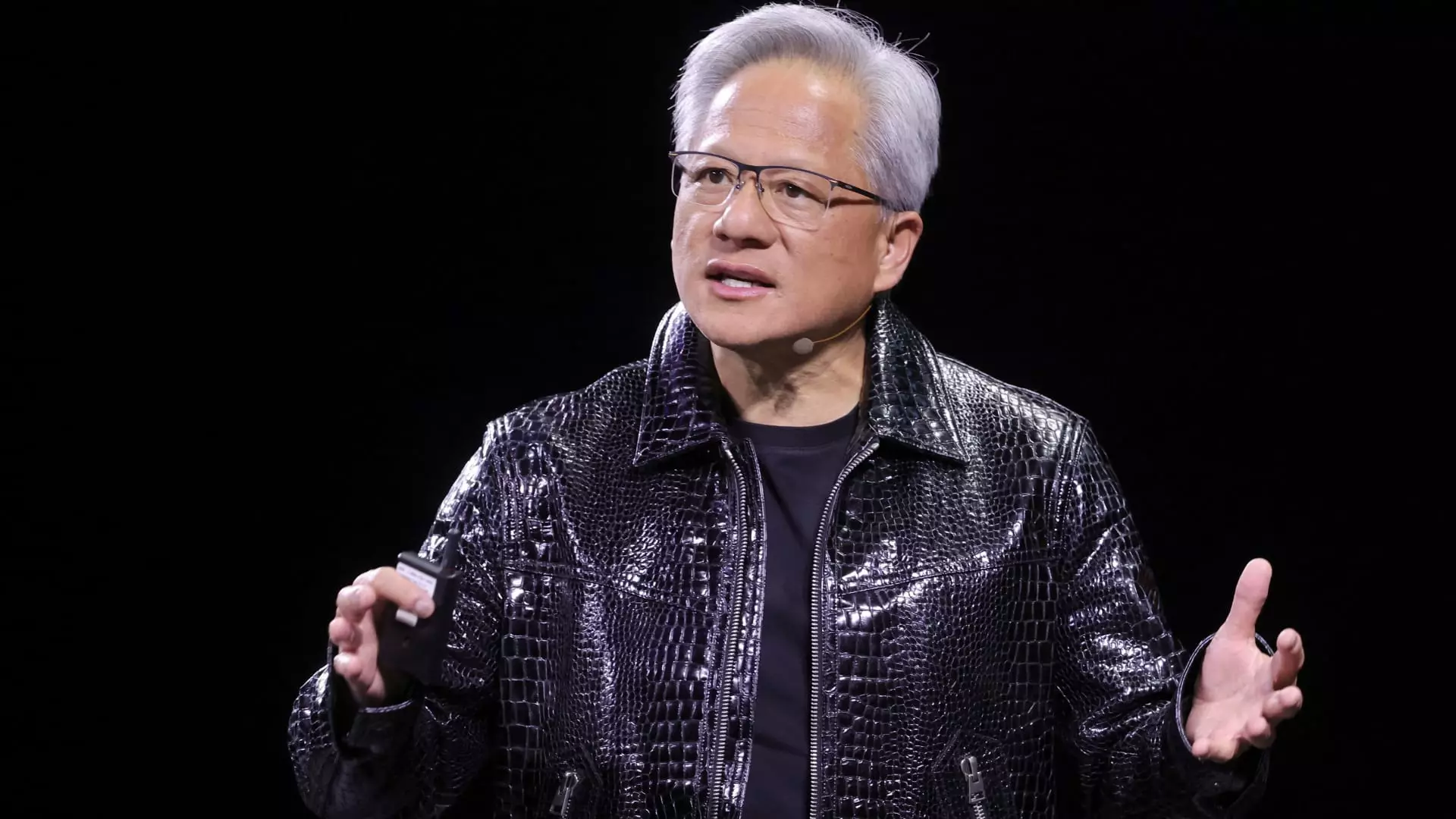Jensen Huang, the dynamic CEO of Nvidia, recently attempted to recalibrate the public’s expectations surrounding quantum computing during the company’s inaugural “Quantum Day.” Initiating the event with an optimistic flair, he treaded carefully through his previous bleak predictions about quantum technology requiring at least 15 years to become practically useful. However, Huang’s retraction seemed less an act of concerted strategy and more a sign of desperation in a market riddled with skepticism and currency depreciation. Instead of serving as a beacon of hope, Huang’s words resulted in a shocking downturn for several key players in the quantum sector, a clear indication that faith in this technology remains fragile at best.
Investors in a Panic
To say the market reacted unfavorably is an understatement. Stocks for companies like D-Wave plummeted by 18% while the Quantum Defiance ETF suffered a drop of 2%. The stark impact of Huang’s admission underscores a prevailing uneasiness within the investment community about the validity and timing of quantum technology’s breakthrough. It appears many investors are still coming to terms with the idea that a technology touted to revolutionize industries may remain over the horizon for years to come. When the leader of one of the most influential tech companies hints at the extended timeline, it’s no surprise that stocks react dramatically. An investor’s confidence is crucial, and Huang’s previous comments had already rattled that confidence significantly back in January, raising more questions than answers.
The Marketing Dilemma
Huang’s comments about marketing quantum computing as a complementary tool rather than a replacement for classical systems further complicate the narrative. Analysts, like Needham’s Quinn Bolton, have pointed out that likening quantum systems to classical computers sets unrealistic and premature expectations. With such high stakes involved, positioning these advanced technologies appropriately is paramount. In a climate where every word from influential figures can shift market tides, Huang’s critique on branding could land poorly, exacerbating investor fears rather than easing them. By attempting to define quantum computations in terms that understate their potential, Huang risks weakening the argument for necessary investments into the field.
Nvidia’s Dual Role and Future Ambitions
Despite the intricacies of the quantum computing discussion, Nvidia stands at an advantageous juncture. The organization isn’t just a spectator in the quantum race; it is actively working on merging traditional GPUs with quantum chips. This synergy could unlock a multitude of possibilities, placing Nvidia at the forefront of the tech evolution. The establishment of a research center in Boston, where collaboration with eminent institutions like Harvard and MIT will occur, signals a strong commitment to the quantum agenda. However, as much as these developments may paint Nvidia in a positive light, the realities of quantum computing may weigh heavy on market sentiment, leaving the overall narrative muddied.
What Lies Ahead for Quantum Computing?
While Huang ambitiously positioned himself as a visionary during his speech, the reality is a constant struggle between potential and present utility. Although he acknowledged the extraordinary impact quantum computing could have if realized, skepticism lingers among both investors and the broader tech community. The Quantum Defiance ETF has seen a grim performance thus far in 2023, continuing a pattern of uncertainty that deepens with each cautionary statement. The tech giant’s challenges should serve as a reminder that hype without tangible progress can lead to severe backlash.
In a nutshell, if Huang wishes to bolster the future of quantum computing, he must bottle a mixture of audacity and pragmatism. Innovation at this scale does not thrive on stretched marketing narratives or overly optimistic timelines; it demands responsibility and realism. The potential is monumental, but the risks—both financial and reputational—are equally formidable. We stand at a crossroads, and the reality of quantum computing could either illuminate a new era or continue as a mirage in the ever-evolving landscape of technology.

